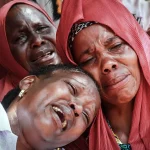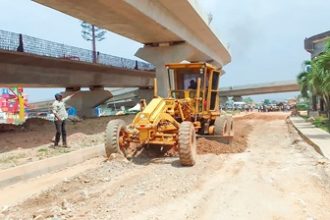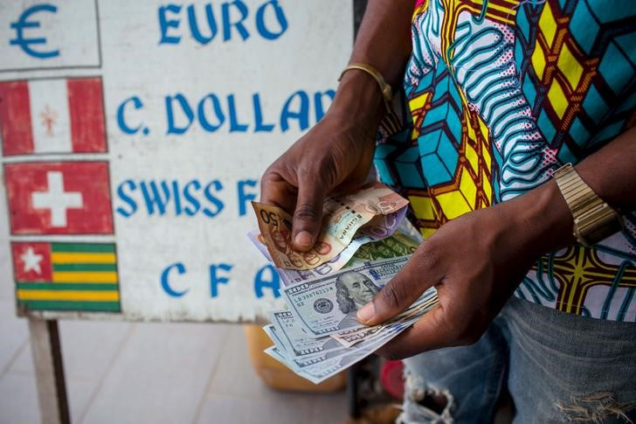On February 22, 2020, Joy FM’s news and current affairs programme, Newsfile, took on some of the week’s most topical issues -the conversations around illegal mining and its adverse effects, the President’s State of the Nation Address, the Minority’s boycott of the SONA and the aftermath.
TheGhanaReport.com monitored the discussions and brings you seven things we learned from the show.
- Chemicals from Illegal mining activities may contaminate ‘food supply’
The anger and frustration about galamsey is directed at polluted water bodies, missing excavators and environmental degradation. But there is a side that has been ignored—the consequences of illegal mining activities on food security. A Pharmacist and research fellow at CDD, Ghana, Kwame Sarpong Seidu, said the fight against illegal mining had been… He argued that besides the immediate effects, including malaria, cholera and other water-borne diseases, there were delayed effects. With the misuse of chemicals including cyanide, mercury and arsenic in the illegal mining process, the heavy metals in the water bodies, he said could result in an unreasonably high amount of poison that could get into water bodies, and in effect pollute the soil. The long-term effect, he said, was that “it’s going to go into the food supply chain and will then lead to heart failures among other dire diseases.”
2. The Majority will show maturity during SoNA debate
The Minority boycott of the State of the Nation Address has been met with fierce criticisms from the Majority. Some say it was more of a ‘tit and tat’ game, but the Minister of Information, Kojo Oppong Nkrumah, has indicated that the Majority in Parliament would make reconciliatory overtures when the MPs dissect the President’s State of the Nation Address. According to him, the Leadership of Parliament have had some conversation about the debate, and hence the decision to allow the Minority to take part in the debate from Tuesday.“We need to take a higher ground to avoid what is becoming a race to the bottom. I have heard colleagues say they will obstruct the Minority from expressing their views, but we need to quickly move forward, ” he said. But responding to Oppong Nkrumah, the Member of Parliament for Yapei/Kusawgu appeared indifferent and drew the Minister’s attention to a similar incident in 2013 when the NPP decided to walk out of the chamber before President John Dramani Mahama took his seat for the SONA.
3. Boycotting ceremonies makes us look like a failed state
Mention a failed state in any Government class and fingers will point at Somalia, Afghanistan and to some extent oil-rich Libya and Iraq. But the Vice-President of IMANI Africa, Kofi Bentil, believed Ghana was inching closer to that league of nations with dysfunctional state institutions. While condemning the opposition MPs walkout on the President, he said there could be no justification for the act. “We can start a vicious cycle, by one party declaring that ‘we will never do this again’ to end this vicious cycle. “Then, he went into what political scientists and international relations expert would debate. He said one characteristic for a failed state was the denigration of state ceremonies. Mr Bentil argued that state ceremonies were a representation of the state, and one’s ability to bring parties together was a testament to the viability of the nation. He, therefore, advised that both parties put their differences aside and boycott no state event again.
4. Missing excavators: Police inquiry not enough
In January 2020, the Minister for Environment, Science, Technology, and Innovation, Prof. Frimpong Boateng, stunned Ghanaians when he admitted that hundreds of seized galamsey excavators had gone missing at the various assemblies. The President, in his address, said the government would bring the persons responsible to book. But a Senior Research Fellow at the Center for Democratic Development (CDD-Ghana), Dr Kojo Pumpuni Asante, charged President Akufo-Addo to deal with the missing excavators beyond a police inquiry. He argued that the President’s inability to solve this problem would create a dent in his efforts in tackling the illegal mining menace.
5. The missing excavator issue shows ‘failure and insincerity’ of the government
While the President appears to praise himself and his government on the successes they have chalked in the galamsey fight, Vice President of Imani Africa, Kofi Bentil held the view that “the excavator issue is the heart of the scandal. It shows the failure and insincerity of the government.”
He said he was not surprised at the President’s silence on the number of missing excavators “because that would have been very dangerous” as there was the possibility that the President could get the figures and ongoing investigation could say otherwise.
“I doubt if anybody knows how many excavators they [government] have seized. I doubt if anybody knows where they are. I doubt if anybody knows who has taken them. The excavator thing has become the heart of the scandal,” he lamented.
6. Missing excavators can be solved by changing the current crop of appointees
The President, in his address, had said the Inter-Ministerial Committee, along with Operation Vanguard, had seized and destroyed12,000 “changfan” machines. He also told the legislators that some excavators were seized, and several them had gone missing but failed to give the exact number. In response to a question on the way forward, Member of Parliament for Yapei/Kusawgu, John Jinapor, believed the cause of illegal mining had more to do with appointing the right people. He wanted the President to use his power to fire to send some of his appointees home for dozing off on job, in the fight against galamsey.
He said the government should give the new appointees key performance indicators (KPIs). Mr Jinapor said the President should also give them timelines and specific targets to achieve. As his NDC peer spoke, the Information Minister almost jumped out of his skin. When he took his turn, he snapped, “this high flattering, flowery language that John Jinapor has just put across is typical political posturing that does not get us resolution in the end.”
“Where are the super-competent people the former President, John Dramani Mahama appointed, what were the KPIs, ” he quizzed?
7. Settling debts owed DKM customers and other depositors increase President Akufo-Addo’s in 2020 elections
The DKM and God is Love financial saga preceded the Akufo-Addo administration, but it was a campaign message that bolstered his chances in the 2016 election. It cost the NDC, which was then in government, the elections in the then Brong Ahafo Region. President Akufo-Addo, while on the campaign trail in 2016, promised to pay all those who lost money in the financial scam. He repeated that promise while delivering the State of Nation Address last Thursday, indicating that all those who lost money in the banking sector crisis would receive 100% of their funds.
John Jinapor, however, remained sceptical of the President’s promise and has reiterated that President Akufo-Addo cannot pay depositors on Monday (February 24) because no provision had been made for it in the 2020 budget. But Kojo Oppong Nkrumah insisted it would be done.
















